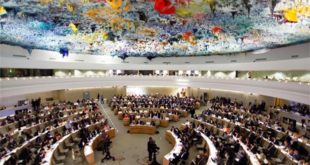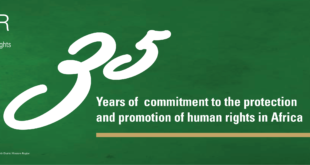One in every 50 migrants who try to reach Europe across the Mediterranean Sea will die on the journey. What is so terrible in their home countries to force people into such a desperate voyage?
According to the UN High Commission for Refugees, around 165,000 refugees made the Mediterranean Sea crossing this year, and more than 3,000 died.
Migration across the Mediterranean has risen rapidly in recent years – there have been more people making the crossing in 2014 than in the previous four years combined.
In response to migrant deaths – arguably, conversely – the UK and other European countries have ended stop and search rescue operations in the Mediterranean.
Some MPs, such as Philip Davies, say this will stop migrants “trying their luck” – but does the reality of life in their home countries make the dangerous journey, even without the safety net of rescue crews, worth it?
Almost half of the people arriving in Europe are from Eritrea and Syria, with thousands also venturing from Mali, Nigeria, Gambia, Somalia and Egypt as well as other sub-Saharan African countries.
Behind them they leave war and human rights abuses.
Eritrea
Mediterranean migrants in 2014: 28,557
Many of those who died off the coast of Lampedusa were fleeing Eritrea’s appalling human rights record.
National service is mandatory for all men and women in Eritrea – but rather than serving in their country’s military for a few years, mandatory service in Eritrea can be extended indefinitely and “soldiers” are routinely used on civilian labour projects in what Amnesty International says amount to “forced labour”.
On top of this thousands of people are currently held in detention for questioning government policies, their work as journalists, for practicing a religion not recognised by the state, and for trying to evade national service.
_LRG.jpg)
Torture is widespread, with reports that prisoners of conscience and political prisoners have been tied with ropes in painful positions, beaten with sticks, whipped with electric wires and forced to walk over sharp objects.
Seble, now 28, left Eritrea when she was 17 – paying a smuggler to transport her, along with 22 others, to Greece in a plastic dinghy.
“I left because of religious persecution. They don’t allow you to be a Christian there,” she says.
Henok Ahforom who lost his sister in the Lampedusa boat tragedy, a journey he made himself, said staying in Eritrea is like “dying without trying”.
Eritrea has said that UN criticisms of its human rights record are “politically motivated”.
Source: Channel 4 News
 ELL Eritrean Lowland League
ELL Eritrean Lowland League



